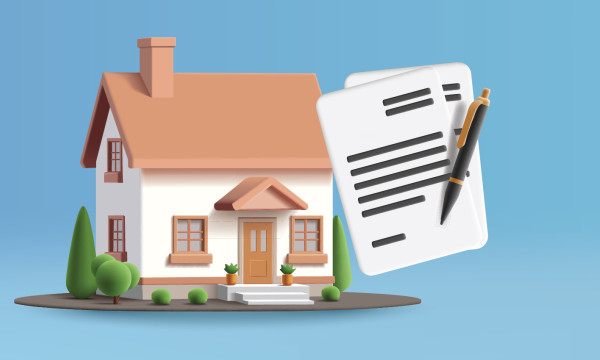What goes into your mortgage payment?

A typical mortgage has many components, and all those terms can be confusing to keep track of — not to mention figuring out who is responsible for paying for which parts, and how. If you’ve ever found yourself asking those questions, good news! We’re here to help you understand how it all works.
First, let’s review what all these terms mean. A mortgage can have many components, so it’s important to know what they all mean and why they’re in the mix. As we explain these items, it’s also important to note that the exact breakdown of your mortgage payment may vary depending on your specific loan terms, which programs you qualify for, and any additional agreements you have with your lender.
When you sit down to prequalify with your UBT home loan officer, they’ll explain all of this to you, so you understand what to expect when you’re buying a new home. So, let’s dive right in!
A quick glossary of terms
- Principal: This is the amount of money you borrowed from the lender to purchase your home. It’s the initial loan amount that you need to pay back over time.
- Interest: When you borrow money from a lender, they charge you interest in exchange for giving you the loan. The interest portion of your mortgage payment goes toward paying off this cost.
- Escrow: An escrow account is an account funded by a portion of your monthly mortgage payment but managed by your mortgage servicer. The money held in your escrow account is used by your mortgage servicer to pay property taxes and insurance premiums on your behalf, including:
- Property taxes: Property taxes are levied by local governments to fund public services like schools, roads, and emergency services. The amount you owe in property taxes is based on the assessed value of your home and in the Midwest, is typically paid twice a year. Your home is generally reassessed every year, which may change the amount you owe in taxes.
- Homeowner’s insurance: This insurance protects your home and its contents from damage or loss due to events like fire, theft, or natural disasters. Lenders require borrowers to have adequate homeowners’ insurance coverage.
- Flood insurance: If the property you’re purchasing exists in a flood plain, you’ll be required to purchase flood insurance.
- Private mortgage insurance (PMI): This type of insurance protects the lender in the event you default on your loan. You may be required to carry PMI based on your down payment.
How can your monthly payment change?
If your mortgage has an escrow account, fluctuations in your property tax payment or insurance premiums may require a change in the amount that is paid into your escrow account each month. Homeowner’s insurance, flood insurance, and property taxes can all adjust over time, based on different factors. As those items increase or decrease, the monthly amount will normally need adjusted. Your escrow account will be analyzed annually to determine if you have a shortage or surplus of funds with the updated disbursement premiums. This analysis will also adjust your monthly mortgage payment accordingly for the following 12 months. It’s normal for the escrow portion of your monthly payment to change each year after your analysis is completed.
We’re here to help
Helping you sort it all out is what we do! Here at UBT, when you chat with a loan officer to get prequalified, they’ll review these items when they give you a budget for your house-hunting adventure. Not only that, but they’ll equip you with helpful tools to use when you’re narrowing down the house search — including a handy offer tool that lets you calculate payments based on all the information available for any of the houses you’re eyeing.
Reach out to a loan officer for more information or to get prequalified. They’re your first step on any house-buying journey!
Loan products subject to credit approval.
Learning Center articles, guides, blogs, podcasts, and videos are for informational purposes only and are not an advertisement for a product or service. The accuracy and completeness is not guaranteed and does not constitute legal or tax advice. Please consult with your own tax, legal, and financial advisors.





